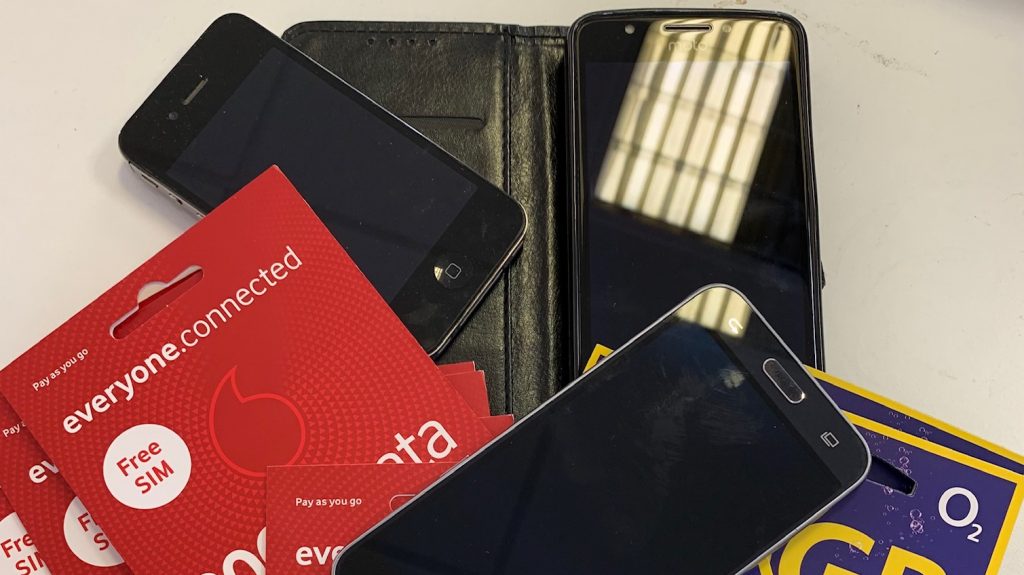There’s a news story circulating, today, about a social media post from a parliamentary candidate which includes a reference implying that people who are paying for a £30pm mobile phone contract are not genuinely in need of additional financial support. The original post is about three years old but it’s the sort of comment that does surface from time to time and is often based on incomplete understanding.
As digital inclusion specialists, we’d like to help more people understand why we believe this sort of thinking is fundamentally flawed.
Access to the internet on a daily basis is no longer optional in our society.
Almost all interactions with public bodies – from our local councils, to DWP, to education establishments, to the NHS and the judicial system – are now digital first. This means most citizens need regular, reliable and confident access to the internet and the ability to transact online and to send and receive emails.
People who don’t have access regularly face sanctions that can make their situation worse, and 92% of jobs are advertised exclusively online.
Access to public “internet” spaces does exist but can be tricky to access for some people.
Libraries are a great source of computers to use and, in some cases, free wifi but demand is high and not everyone can easily visit a library.
East Sussex Library Service does an excellent job of providing facilities and, where they can, volunteers to help but some of the services are over-subscribed and opening hours have had to reduce over the years to balance budgets. Over the rest of the country, councils are making tough decisions on their library services and many places will be forced to close.
This, coupled with reduced public transport options, and their costs, can make getting to a library a bit of a challenge, especially when coupled with having a young family and the time juggling that can involve.
Devices are very expensive
The cost of digital devices has increased a huge amount over the last couple of years.
For a really basic Android phone which will allow someone regular daily access and will be security supported for a few years a realistic budget is approximately £80-100. 15% of adults have no savings whatsoever so an initial outlay of this amount may be impossible.
Even a very basic laptop computer is likely to cost twice that of a phone, and needs additional hardware to be able to use mobile data.
Connectivity
Most people need a phone to make phone calls and to use communications applications like WhatsApp. For people in temporary accommodation or rented rooms, mobile data may be the only option.
At the time of writing (Oct 2023) a £30 mobile phone contract (a little under 10% of basic Univseral Credit allowance for a single person) is likely to give you a new phone and possibly 100GB of data per month. If this is your only internet access, your limit might feel quite tight, even without streaming lots of video content. Quite a lot of advice, medical, and other professional interactions may be by video call – this will use a lot of data.
However, people on low incomes with a poor credit record may struggle to be approved for these sorts of arrangements, especially with a multi-year contract and to be able to commit that level of cost. This means relying on Pay As You Go type arrangements – generally much more expensive per Gb of data.
Some Help is Available
TechResort are members of the National Databank and can help some people with mobile data. We also make our facilities (wifi, power, computers, and a bit of help) available to our community when we can.
We work in partnership with Hastings HEART, Citizens Advice 1066 and Kings Church Lewes to support as many of our community in East Sussex as we can, but it’s very challenging with ever increasing demand.
We would urge everyone to understand how difficult life without regular access to the internet is, and how essential a mobile phone might be for people on the lowest incomes.


One comment